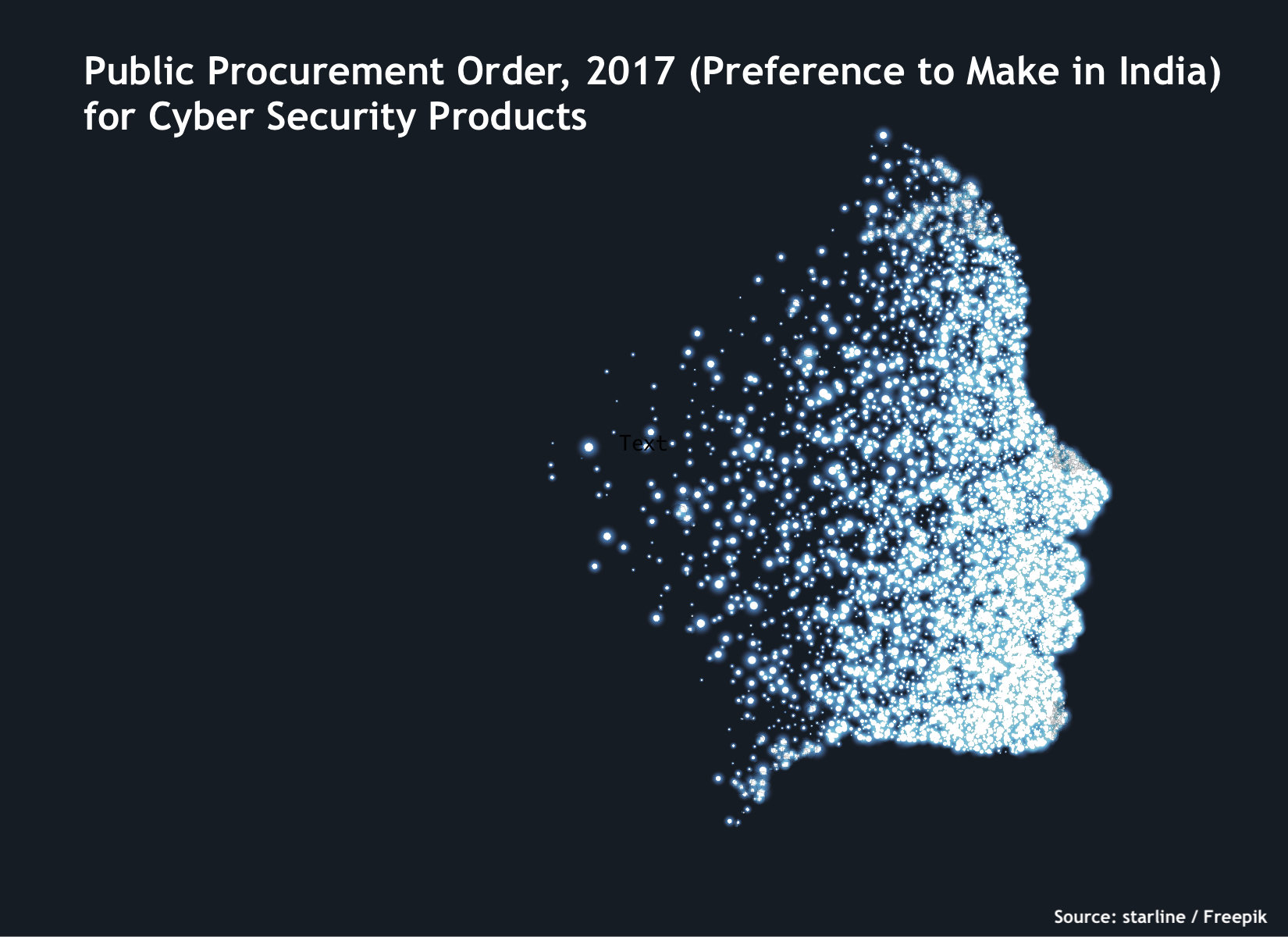The government of India had announced a Preferred Market Access (PMA) policy for Cyber Security products through an order notifying the Public Procurement (Preference to Make in India).
MeitY shall be the nodal Ministry to monitor and administer this PMA policy.
The policy announcement is given at link given here. Public Procurement (Preference to Make in India) Order 2017- Notifying Cyber Security Products in furtherance of the Order
iSPIRT has been pursuing with MietY, application of PMA for all Indian Software Products to promote the Indian Software product industry and it is heartening to note that at least one important sub-sector of Cybersecurity has caught the Government’s attention.
iSPIRT organised a PolicyHacks session to understand this policy announcement with Ashish Tandon Founder & CEO of Indusface and Mohan Gandhi of Entersoftsecurity.
Ashish has been following the policy announcement and has earlier published a blog at https://pn.ispirt.in/cybersecurityproductsprocurement/
You can watch the discussion with Ashish and Mohan at below given YouTube video, in a question and answer format with Sudhir Singh.
What are the essential features of this Policy?
Ashish described the main features stating that this is a policy that is going to help boost Cybersecurity products in India. Govt. of India identified areas that require boosting ‘make in India’ products for the sensitive areas of cybersecurity.
Is there a way product companies can register or Government is going to keep a registry of ‘made in India’ products?
Ashish explains the policy has provided for the formation of a committee that will further provide for a process for empanelment of Indian Cybersecurity products and Indian Cybersecurity product companies with some defined key aspects that would qualify for empanelment.
Ashish further explained that as the empanelment aspects are decided there may also come up with a process for testing and meeting standards and quality norms etc.
Are there are enough product companies in ‘Cyber Security’ space for empanelment?
Mohan Gandhi answered that there are several product companies, but this policy should further strengthen the ‘make in India’ aspect and companies based out of India with deep tech product can look at getting this advantage of this policy.
Whether the Policy will be applicable to “productized services”?
Ashish answered, that this policy is applicable to the only product and at best give preference to made in India products in turnkey projects wherein a large project cybersecurity product is involved.
How will this policy help Start-up companies in Indian Market?
Mohan mentioned, that one interesting thing about this policy is that, it clearly talks about intellectual property. There is a need to register and prove that the IP belongs to India. It will encourage small companies to register the IP and leverage the Indian IP even when they are selling abroad.
Is there enough clarity exist on process and enplanement etc.?
Ashish feels the policy has already prescribed setting up of an empowered committee who will look at these aspects and it is MeitY that will be responsible for doing this.
Ashish further also elaborated that this Policy will get further push once some companies start getting empanelled and processes and rules are framed under MeitY by the empowered committee.
In concluding remarks, both Ashish and Mohan felt that Cybersecurity ecosystem will get a boost by this policy as the policy is furthering the cause by advising Government departments for preferring Indian products. With Digital economy on anvil, there should be a huge demand in Government and Public sector enterprises for cybersecurity. Cybersecurity product market is today dominated by players from the US, Europe and Israel.
The policy has to be pushed hard to further encourage and coupled with StartupIndia policy, there should be all-out effort to promote the Indian Cybersecurity product companies.



